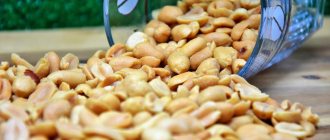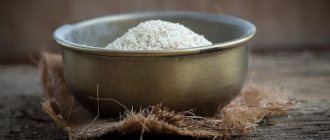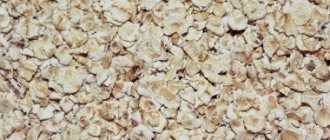A dog is a mammal , so it is logical to assume that milk is a natural and healthy food for it.
Many owners feed their dogs milk constantly, even into adulthood. But is this right? How beneficial is this product for dogs and is it well absorbed? And also what can replace it in your pet’s diet.
Role in diet
Milk is a source of easily digestible calcium, protein, amino acids and vitamins necessary for the body. It fills you up quickly and complements everyday dishes well. It has many medicinal properties:
- helps with viral diseases - a glass of hot milk with honey activates the immune system and provides the energy necessary to fight bacteria;
- for insomnia and headaches - due to the fact that milk contains tryptophan and phenylalanine acids, the nervous system calms down, pain subsides, and sleep comes faster;
- for stomach diseases – helps regulate acidity, reduces pain and even helps to lose weight faster;
- for cosmetic purposes - milk-based masks perfectly nourish the skin, have an anti-inflammatory and rejuvenating effect.
Milk is very beneficial for the human body, but drinking it whole is not always possible for everyone. It contains casein protein, the absorption of which requires a special enzyme - renin. An adult does not have it, but its role is played by the enzyme pepsin. But pepsin does not always take on the tasks of renin, but only in 70% of people; in the remaining 30%, whole milk causes bloating and other digestive disorders .
Another negative property of milk is its high calcium content. On the one hand, this is good, but on the other, due to casein, calcium in the stomach is oxidized, and the body has to use its calcium reserves to bring the acid-base balance back to normal. It turns out that instead of saturating the body with calcium, milk takes away part of its reserves .
Milk contains a lot of milk sugar - lactose. When it enters our body, it is broken down into glucose and galactose. Galactose is not only not absorbed, but also not completely eliminated from the body, but is deposited in joints, on the lens of the eye, under the skin and in other places . The exception is children under 2 years of age, whose body can still fully absorb galactose.
Can puppies get store-bought milk?
Doctors do not recommend giving puppies store-bought milk. This diet often causes severe abdominal pain and diarrhea. In addition, before it reaches the counter, it undergoes numerous processing, during which it loses a number of valuable elements. Make no exception for pasteurized milk. Due to a deficiency of fat and essential substances, fluid can cause abnormalities in the development of bone and other systems.
Can puppies drink skim milk? Absolutely not. During processing, vitamins A and D, necessary for the normal absorption of calcium and protein, disappear from the composition. Therefore, a low-fat product has a bad effect on the development of the skeletal system.
If you have no choice (the bitch has no milk, there is no special formula on sale, you couldn’t buy it at the market), never buy a cheap product. Usually this is a low-quality liquid, where a couple of spoons of milk powder have been heavily diluted with water. It has almost no smell, taste, and no benefit.
Benefit or harm?
Cow
Cow's milk is very different in composition from dog's milk . It contains almost 3 times less proteins and fats, as well as phosphoric acid, iron and lime. Therefore, when feeding puppies, cow's milk is supplemented with raw chicken eggs to balance the composition of nutrients and increase calorie content. But keep in mind that due to the high lactose content, cow's milk can cause diarrhea.
Goat
Goat's milk is healthier than cow's milk : it contains more proteins, fats (precisely unsaturated), calcium and easily digestible vitamin A. It is better absorbed, so it is recommended to give it to puppies much more often than cow's milk.
But in any case, you need to constantly monitor the condition of the dog’s feces: it should not be liquid . Diarrhea is a bad sign and a reason to immediately stop giving milk, or give it, but dilute it with water.
Can puppies have cow's milk?
Dog milk contains 9-13% fat, while farm cow's milk contains just under 4%. This is not enough for newborns to develop a strong nervous system and other organs. The result is developmental delay.
If you are wondering whether it is possible to feed your older puppy milk, the answer is no. When babies grow up, they need less fat than cow product contains. If they drink it, they often develop obesity and have an upset stomach. In addition, the nutrients it contains are not enough for the full development of the baby.
If there is no way out (the dog does not have milk, there is no substitute on the market), cow milk can be given by stirring 1 egg in a liter of water. But this is the most extreme option, since the mixture can cause stomach upset and diarrhea. Therefore, urgently call the veterinarian and find out how to feed the babies.
The question often arises: can one-month-old puppies have milk? No, diarrhea and stomach pain are possible. By this time they begin to be switched to semi-solid food. Which one exactly, check with your veterinarian.
In case of poisoning
If a dog is poisoned, it, like a person, needs light food that will not overload the digestive system. It can be a chicken egg, cottage cheese, oatmeal, yogurt, lean boiled meat, liver. Under no circumstances should you give milk , as it is a very heavy food and can seriously aggravate the condition of a sick animal.
Reference! Milk can only be given if the dog is poisoned by heavy metal salts: lead or mercury. The proteins that are present in this product “bind” and remove heavy metals from the body.
About the discussion
There are often quarrels between professional dog handlers and ordinary dog owners about whether the dog can be given milk. It is important to pay attention to what both sides rely on in their reasoning. Some people are guided by personal experience, traditions, and even simple human logic, while others are guided by the latest scientific research, surveys, and statistics.
Attention! Do not take a harsh position on this issue! In some situations, milk is simply necessary for the animal’s body, while in others, on the contrary, it is harmful.
How often and in what quantities?
Elena Glikina’s “Home Guide for Dog and Cat Owners” indicates the amount of whole milk for puppies:
- 1-2 months – 100 ml;
- 2-3 months – 100-200 ml;
- 3-4 months – 200-250 ml;
- 4-5 months - only kefir.
Even as adults, many pets love milk very much and often ask for it themselves. If you see that there are no changes in the stool, sometimes you can give him 0.5-1 glass ( depending on his weight , for example, this will be a lot for a small dog).
What's the best way to give?
For adults
For an adult dog (if you do give it or decide to give it), it is better to simply pour milk diluted with water into a bowl without mixing it with anything. But this is at your own peril and risk. Many owners feed their pets this way every day and do not notice any changes. It all depends on the individual characteristics of the pet’s body.
Should I give them “chappies” or other dry food?
Puppies are sometimes given food soaked in milk to make it softer and tastier. You can't do that! Most dog food contains preservatives and a lot of pathogenic flora, which, due to the presence of milk, multiply intensively and can cause poisoning.
With porridge
Whole milk and milk cereals are harmful for adult dogs , but there are cases when it is impossible to do otherwise. For example, after a long illness, when the dog needs to gain weight, and it is difficult to do this with the help of slimy porridges in water and lean meat. In this case, you can sometimes cook porridge with milk diluted 1 to 1 with water.
Adding to tea or coffee
Milk + tea or coffee = poisonous substance for your pet. Never give your dog such a drink , even if he really asks (and this happens). Milk is not digested and causes diarrhea and vomiting, and caffeine, which is found in tea and coffee, can cause serious poisoning, even death.
Reference! The exception is lactating bitches. To increase milkiness, they are given coffee substitutes (for example: “Ear”) with milk and honey: 1 tsp. for 0.5 l. 3 times a day.
For puppies
If the bitch's milk supply has disappeared/decreased or the puppies have been taken away from their mother early, they should continue to be fed milk . Dog milk can be replaced with cow's or goat's milk.
To bring the composition of the milk as close as possible to the composition of the bitch’s milk, you need to add a fresh chicken egg to it: 1 pc. for 0.5 l. Later, when the puppy begins to lap from the bowl, you can add bread crumbs and cook milk porridge.
Dairy nutrition with a smooth transition to complementary foods begins at 20-21 days and continues until 1.5-3 months , then you can switch the puppy to fermented milk products and cottage cheese.
Pregnant or breastfeeding
During pregnancy and nursing puppies, the bitch experiences an urgent need for additional protein. With insufficient consumption of protein foods, pregnancy can be interrupted, the body is weaker and less resistant to diseases. To compensate for protein deficiency, milk , as well as cottage cheese and kefir can be added to the animal’s diet.
If you give milk to a pregnant or already whelped dog, monitor her body’s reaction. If it doesn’t make you weak, you can give up to 1 liter of milk per day.
Are there any exceptions for breeds?
Milk is contraindicated for all adult dogs, but especially for breeds that are prone to food allergies. These include all light-colored dogs : bulldogs (including French), boxers, Dalmantines, terriers, Labradors, setters, etc.
Breeds of small dogs such as Papillon, lapdog, and pug are especially susceptible to the diet. Some breeds of puppies, such as German Shepherds, often experience bloating and diarrhea, which should also be taken into account when deciding whether to give them this product or not.
Milk waste and its beneficial effects on the dog's body
The so-called “milk waste” - whey and buttermilk - is also useful to introduce into the dog’s diet to saturate the body with calcium. In addition, they contain a number of other useful elements: potassium, magnesium and phosphorus.
The great advantage of whey over other lacto-products is that it consists of 94% water, and the proportion of fat in it is only 0.2%. You can cook porridge with whey, and in its pure form it acts as a laxative, so you can give it to your four-legged friend for constipation.
Buttermilk is rich in lecithin and its consumption increases acidity and also reduces gas formation.
They are recommended for those dogs that suffer from intestinal, liver and kidney diseases.
How to choose?
The best option for dogs is lactose-free milk . Animals drink it with pleasure and without harm to their health. Goat's milk is also relatively safe: unlike cow's milk, it does not contain as much lactose and is less fatty.
Mare's milk (most of all lactose) and soy milk (too much protein) are dangerous for dogs . And such exotic types as coconut and almond can be given only in very small quantities and then after you make sure that their composition is completely natural.
Can dogs be given milk?
Veterinarians say unequivocally: dogs should not be given milk. The liquid causes digestive disorders and is poorly digested. It was noticed that even if the dog loves the product, when he is sick, he refuses to drink.
Regarding fermented milk products (cheese, cottage cheese, kefir), opinions differ. Many veterinarians do not recommend them. There are doctors who allow the consumption of fermented milk products in small quantities, recommending watching the dog’s reaction. They explain their position by the fact that cottage cheese and kefir contain lactic acid bacteria, which are beneficial for the digestion of dogs.
What to do if things get bad?
If your dog starts vomiting or has diarrhea after drinking milk, you need to take the following steps :
- stop feeding the dog for 1-2 days;
- Provide her with enough clean water. If he doesn’t drink, force-feed from a spoon or pipette;
- After a fasting diet, you can include light foods in your diet: low-fat broths, beef, low-fat cottage cheese, well-cooked rice and rice concoctions.
If the symptoms disappear after 2-4 days, you can gradually switch your pet to a normal diet. If not, contact your veterinarian. Also, the dog should be taken to the vet immediately if:
- she had a fever;
- blood appeared in the stool;
- she does not want to eat or drink;
- She constantly vomits and has severe weakness.
Dairy
Giving dogs kefir, yogurt, cottage cheese and unsweetened yoghurts is not only possible, but also necessary ! In fermented milk products, bacteria and yeast have already converted lactose into lactic acid and made the product safe for the animal.
Fermented milk products saturate the dog’s body with the necessary amount of calcium, protein, as well as beneficial vitamins and minerals. The most important thing is that it contains probiotic cultures, which are necessary for proper intestinal function.
Important! Sour cream, cheese and cream are too fatty foods that are harmful to dogs. And fermented baked milk can cause fermentation.
Special for animals
If your dog really loves fresh milk, you can give him special milk instead of regular milk from the store or homemade milk . It is sold in veterinary pharmacies and does not contain lactose. You can give it to your four-legged friend without fear - it will definitely not cause diarrhea and vomiting.
The most famous and trusted manufacturers of lactose-free milk for dogs:
- Royal Canin;
- Canina;
- Brit Kea;
- Nutri-Vet;
- Trixie.
All milk is mostly dry: it needs to be diluted in water, but this does not affect the consistency and taste. In terms of cost, the most budget products are produced by the Trixie brand.
Lactose intolerance in puppies
All milk contains lactose, which makes the product sweet. Only in dog milk it is 3-4%, in cow milk - almost 5%. Lactose is processed by the enzyme lactase. Puppies produce it in large quantities. When they no longer need mother's milk, enzyme synthesis decreases, and in some dogs it almost stops.
If lactase does not cope with the task, lactose is retained in the body. It settles in the intestines, where it interacts with bacteria. Result:
- diarrhea;
- bloating;
- vomit;
- stomach ache.
Not all dogs react badly to milk; some drink without problems. But most experience various disorders. Some dogs only react to whole foods. Others react poorly even to fermented milk products, which are usually easier to digest.
What else to feed for good digestion?
In addition to fermented milk products, you can include in your dog’s diet:
- Boiled beef - it is easily digested and provides the right amount of energy. Daily norm: 60 g per 10 kg of weight.
- Light soups with natural vegetables - such soups should contain more cabbage, beets, carrots and less potatoes. Even when boiled, they will give your pet’s body the necessary vitamins and fiber.
- Vegetable oil (unrefined: sunflower, flaxseed, pumpkin) – prevents kidney disease, cleanses the body, improves the condition of the coat and strengthens the dog’s immunity. 1-2 teaspoons per day is the norm.
- Porridges made from oatmeal, buckwheat, rice and millet - it is advisable to add vegetables to them and under no circumstances add salt.











